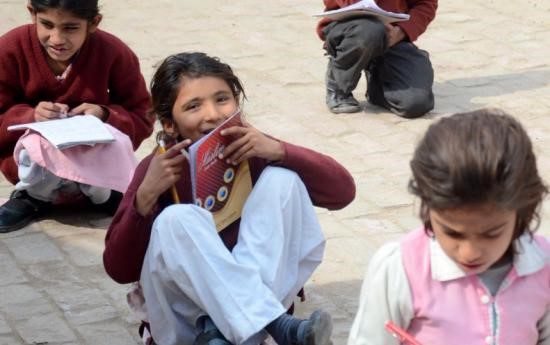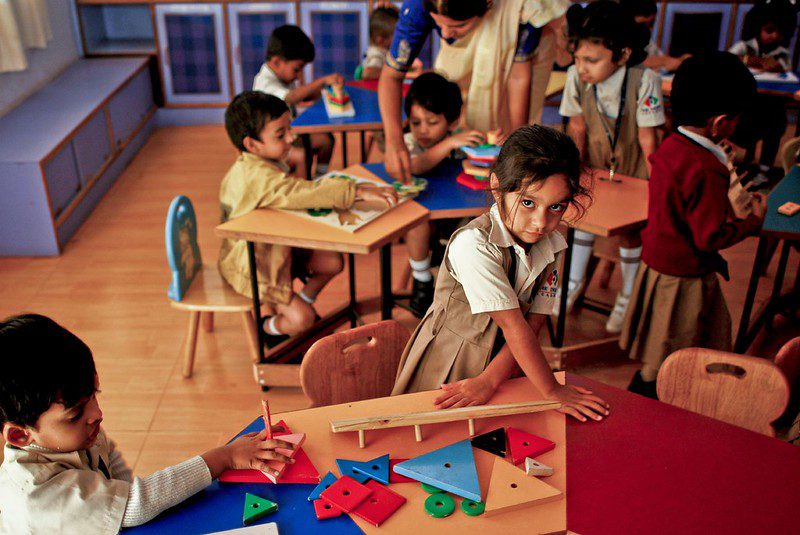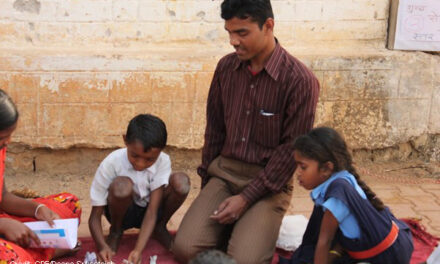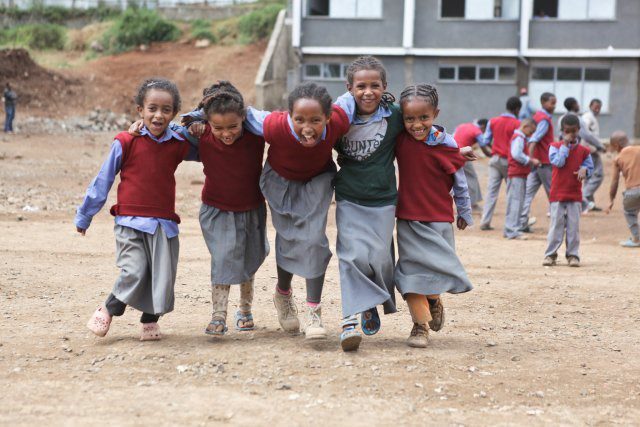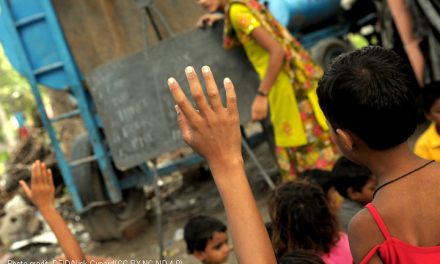This blog was written by Marla Spivack, Research Manager of RISE and a Research Fellow on the Building State Capability program at the Center for International Development at Harvard University. It was published on the RISE website on 10 June 2020.
The consequences of the COVID-19 pandemic and of the policies adopted to mitigate its spread will be drastic everywhere and particularly grim in low- and middle-income countries.[i] As economies shrink, up to a decade of progress in poverty reduction could be undone. As health systems struggle, millions could go without treatment for preventable infectious diseases and childhood vaccination rates could plummet. And as schools are shuttered, millions of children will fall further behind in school with devastating effects on their outcomes later in life.
A leaky roof is a small problem on a sunny day and a big, urgent problem on a rainy one. The COVID-19 pandemic is not just a rainy day for education systems in low- and middle-income countries, it is a one-hundred-year flood. A new paper from the RISE Pakistan Country Research Team (CRT) shows that children in these countries are especially vulnerable since they are embedded in already dysfunctional education systems. The paper also shows that some of the worst damage to children’s long term learning from these closures may come after schools start up again. If children have fallen behind, they may never catch up even after they return to school.
New study of the learning effects of the 2005 Pakistan Earthquake has important lessons for COVID-19 related school closures
In the paper, RISE Pakistan Team members (Tahir Andrabi of LUMS and Pomona College, and Jishnu Das and Benjamin Daniels of Georgetown University) use a survey conducted four years after the 2005 Pakistan earthquake to measure how the disaster affected children’s learning and other human capital outcomes.
The 2005 earthquake was severe, with an epicenter in the Himalayan region, it registered 7.6 on the Richter scale, caused more than 80,000 deaths, and destroyed the vast majority of infrastructure in the area. As a result, children were out of school in the affected areas for an average of 14 weeks.
The researchers studied the effect of the school closures on children’s learning, and the findings have important implications for how we can expect the COVID-19 related closures to affect learning outcomes for children in education systems with similar constraints to Pakistan’s—and what can be done to mitigate these effects.
If countries reopen to business as usual, short-term school closures can produce outsized, long-run learning loss
The results of the paper add further evidence to the established finding that interruptions to human capital accumulation due to disasters can be severe. In this case, they show that the disaster can leave long-lasting scars on children, even when government interventions compensate households for the shock and facilitate a speedy economic recovery.
Four years after the earthquake, school enrolments had fully rebounded, infrastructure had been rebuilt, household incomes had rebounded, and adult’s health outcomes had returned to pre-quake levels, but children were still suffering the effects of school closures. Test scores of children in the affected areas put them 1.5 to 2 years behind their peers in unaffected. This lost learning could result in children earning 15% less in every year of their adult lives.
Losses to human capital may well continue to accumulate further after children return to school, if they fall behind and are not able to catch up with the curriculum. Children fall behind, the over-ambitious curriculum races ahead, and children can’t catch up. In the aftermath of the earthquake, Andrabi et al find that school closures accounted for only 10% of the gap in test scores. Much more was lost after children returned to school. This is likely because children fell behind the standard curriculum during the closure period and then failed to catch up. This reinforces findings from RISE work in India which shows that when children fall behind in school they struggle to catch up later, due in part to overambitious curricula.
If steps are not taken to prevent children from falling farther behind when they return to school, the crisis will likely further exacerbate inequalities
Many commentators have noted that COVID is likely to exacerbate inequalities. The findings from the aftermath of the earthquake suggest that long term school closures can reduce inter-generational educational mobility. Andrabi et al found that in the aftermath of the earthquake children with educated mothers were fully able to fully catch up with their peers from unaffected areas. This finding is troubling considering pre-COVID work from the RISE Ethiopia CRT, which shows that first generation learners are already among the most disadvantaged in terms of learning outcomes.
Pedagogical approaches that focus on teaching children where they are will be critical to averting permanent learning deficits
The compounding of learning loss that was seen in the years following the earthquake in Pakistan suggests that assessing children when they return to school and teaching them from where they are will be vital to mitigating the long-term effect of school closures. The effectiveness of approaches like these often called teaching at the right level, have been well established. When they reopen, school systems should leverage approaches like these, and focus on helping children catch up and solidify their basic skills.
Reopening to business as usual would compound the disastrous effects of the COVID related closures. This catastrophe can be avoided if education systems embrace the opportunity to take on systemic changes, as part of their response to the crisis.
RISE blog posts reflect the views of the authors and do not necessarily represent the views of the organisation or our funders.
[1] Incidentally, the May 23 edition of The Economist also includes a laudatory and well deserved profile of RISE Nigeria CRT PI Leonard Watchekon and RISE implementing partner African School of Economics, which Watchekon founded.
